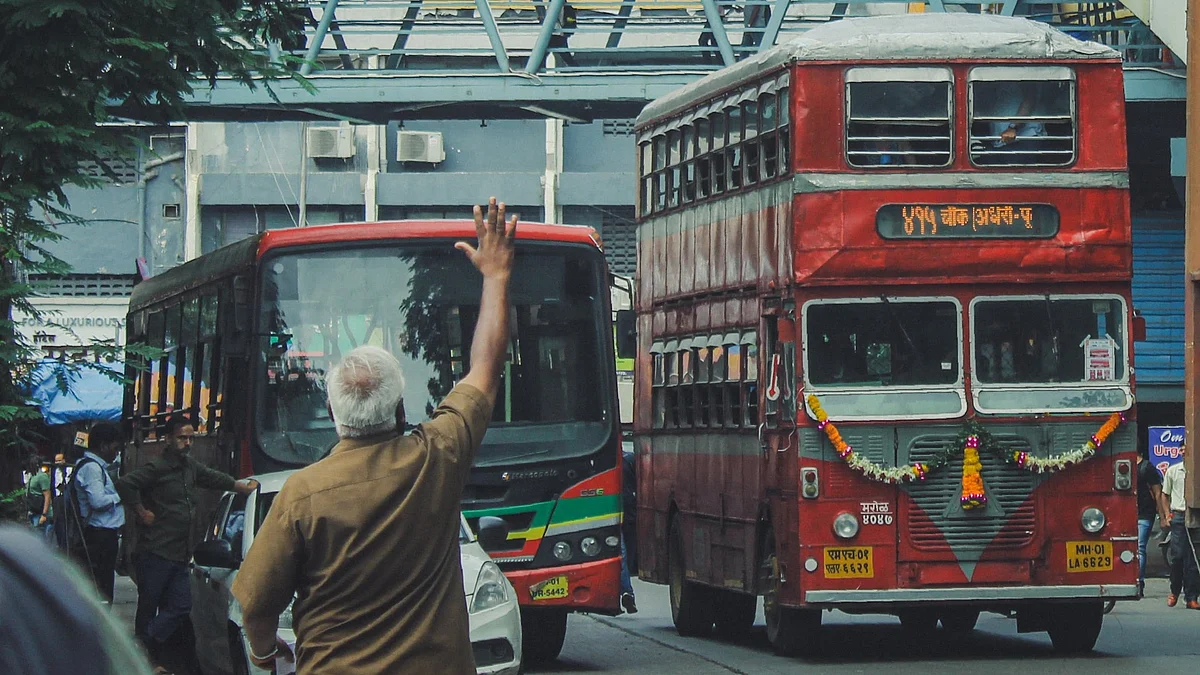In Photos: Mumbai's Iconic Double-Decker Buses Enjoy Their Last Ride In the City
The last double-deck trams, which were introduced in September 1920, bid their final adieu to Mumbai on Friday.

advertisement
Mumbai's last non-air-conditioned double-decker bus enjoyed its last ride in the city on Friday, 15 September. A Brihanmumbai Electricity Supply and Transport (BEST) Undertaking recently official announced that the iconic buses will permanently go off the roads as a fleet of 900 modernised, air-conditioned double-decker buses will be introduced in Mumbai by the end of July 2024.
(With inputs from author SN Pendse's book 'The BEST Story', bestundertaking.com, and Architectural Digest)
To combat the rush hour traffic, the Bombay Electric Supply and Tramways Company (BEST) first introduced its double-decker trams in September 1920.
The trams, which were inspired by London’s motorised double-decker buses, soon became the city's most identifiable feature in the 1960s.
In the early days, the bus fare used to be from two annas to six annas. There were no half-fares for children until 1928. For some time, even return tickets used to be issued.
Now, after almost nine decades, Mumbai's last non-air-conditioned double-decker bus (No 415) left the Marol Depot on Friday, 15 September to enjoy its last rides on the roads of Mumbai.
While some passengers boarded the bus to reminisce about their fond memories, others experienced their first and last rides in the "BEST double-decker in town".
The double-decker took its last round in the city from Andheri (E) Railway Station's Agarkar Chowk to Jogeshwari's (E) Majas Depot.
The BEST had a fleet of roughly 900 double-decker buses in the early 1990s, but changing times and high operating expenses, led to its gradual elimination after the mid-90s.
Gopal Sukte, the bus conductor, told the passengers, "Humein bura lagta hai lekin zamane ke saath aage badhna hai toh puraani cheezon ka expiry date toh ayeega hi aur unko bandh karke humein aage badhna padega. (We feel sad, but if we are to move on with the times, old things will eventually expire, and we'll have to move on.)”
The bus was decorated with balloons, colourful ribbons, and the innumerable memories it shared with each of its passengers over its nine decades of service.
The vibrant red double-decker buses have become symbolic of the city, also featuring in various Bollywood and Hollywood films.
Shreyas Kamble, a local teenager, said, "I'd never ridden on a double decker bus before, so when I heard it was being phased out, I grabbed my camera and came to capture some memories."
Santosh Sawant, the second bus conductor, handed over the old-style vintage ticket to the passengers to mark the bus's last day.
Several passengers, ranging from little children to senior citizens, flocked to the upper deck to enjoy Mumbai's best view from the windows as the bus bid its adieu to the city.
(At The Quint, we question everything. Play an active role in shaping our journalism by becoming a member today.)